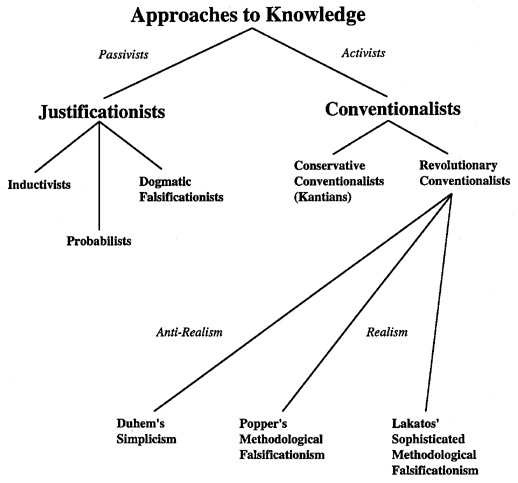
There is no rigorous division of theory and observation. Since observations are theory-laden, observations are merely low-level theories. The best that can be hoped for in testing theories is observations that are intersubjectively testable. On the basis of such observations a theory can be rejected, even in the absence of a replacement theory. Our most successful theories are used as extensions of our sensory observations. Methodological falsificationism differs from dogmatic falsificationism in its recognition of the place of auxiliary assumptions (subject-specific assumptions, other than the hypothesis to be tested, concerning experimental conditions and background theory) in testing theory. The deductive argument according to which all theories are tested, according to Popper, is as follows (where H is a hypothesis, A1, A2, ... are auxiliary assumptions, and C* is an observational consequence that would contradict the hypothesis plus auxiliary assumptions).
IF (H & A1 & A2 & A3...), THEN NOT C*.
C*.
________________________________________________
THEREFORE, NOT H, OR NOT A1, OR NOT A2,...
As can be seen, faulty auxiliary assumptions can always be blamed for a failed hypothesis test, preventing the theory from being falsified. Blaming auxiliary assumptions in the face of negative evidence is called a conventionalist strategem. Scientific honesty, according to Popper, requires the foreswearing of conventionalist strategems and the specification in advance of a certain class of observational consequences that would indeed falsify a theory.
For a further discussion of the application and limits of dogmatic and methodological falsificationism, see this experimental demonstration of why the earth may really be flat.

Last modified March 1998
Visited times since July 2001
Comments?
Home to Metatheory
Home to Great Ideas in Personality